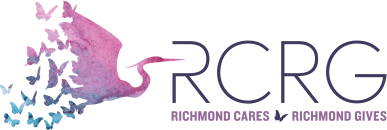-
 Volunteer Now
Volunteer Now -
 Community Giving
Community Giving -
 Member Organizations
Member Organizations -
 Community Foundation
Community Foundation -
 Training Centre
Training Centre -
 Services Directory
Services Directory -
 Events Calendar
Events Calendar -
 My RCRG
My RCRG

.jpg?sfvrsn=2fb25149_14)
Myth: My parents have a fund for me; I don’t need a scholarship.
Fact: Scholarships are worth more than the money. On applications to grad school, articling positions and special programs, the scholarship(s) a student has received can be the difference between success and rejection. Selection committees look for this validation of student achievement and community recognition.
Myth: I’m not going to university or college, so I’m not eligible.
Fact: RCF scholarships are not just for university. We fund students pursuing vocational studies too. As long as the institute is a charitable organization, we can fund tuition.
Myth: My marks are not good enough to get a scholarship.
Fact: Different funds look for different attributes. Community service and extracurricular activities are more important in some cases.
Myth: I am not eligible because I’ve had to work to support my family so I don’t have any community or extracurricular service.
Fact: Some funders are specifically looking to help students who face financial hardship. If this is your case, be sure to include your financial situation and back that up with your confidential reference letters.
Myth: I cannot afford fulltime studies and might have to save for a year before I attend post-secondary, so I won’t bother to apply.
Fact: RCF 2024 high school scholarships can be applied to the 2024/25 or 2025/26 post-secondary school years.
Myth: I am going to a school outside BC or Canada so these scholarships won’t apply.
Fact: As long as you can provide your current school proof of your enrolment at an accredited post-secondary institution (once you are registered), you are eligible for RCF scholarships.